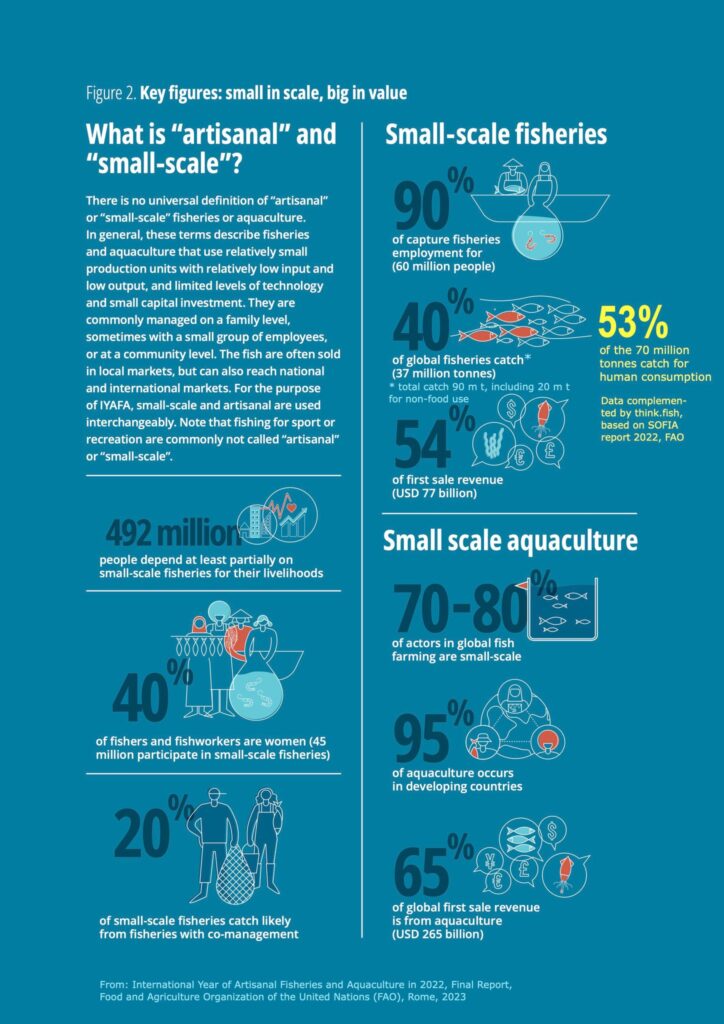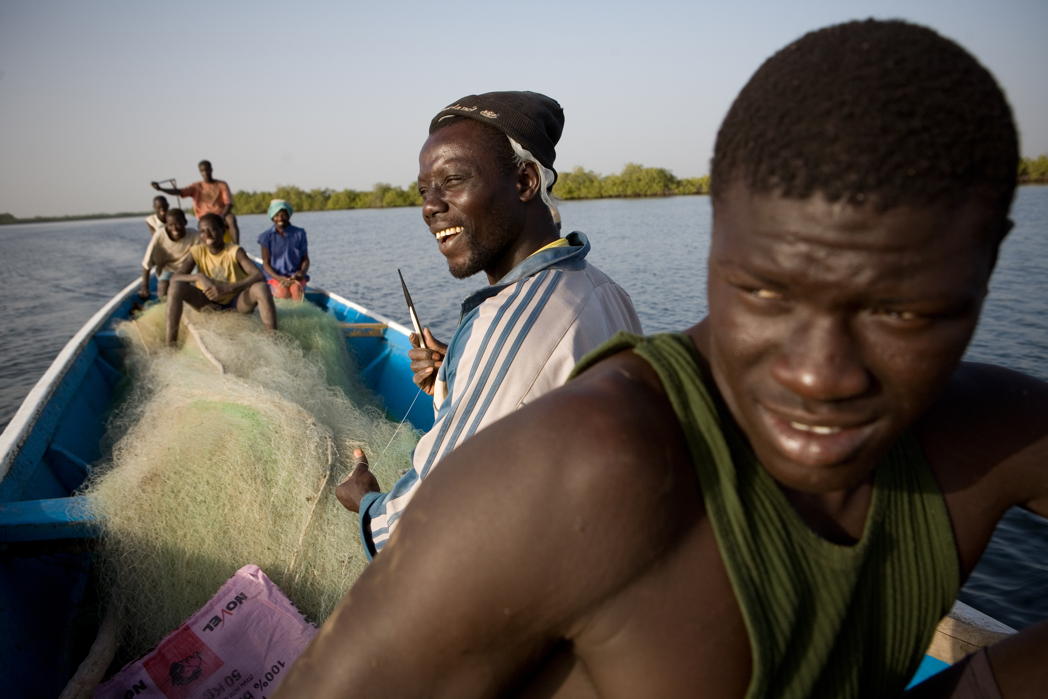Artisanal fisheries provide 53% of the fish consumed worldwide, 90% of employment in fisheries, predominantly in the Global South, and 54% of all catch sale revenues (see graph below). They could provide even more if they were not harried by industrial fisheries. Instead, artisanal fisheries are disregarded.
Artisanal fisher(wo)men in the Global South complain about the frequent disregard of their human rights and demand that their traditional rights to access to water bodies, fishing grounds, landing and transformation sites, and to the market be recognised.
Fisherwomen in particular complain of discrimination and call for their crucial role in artisanal fisheries, families, and communities to be recognised.
Fishing communities complain of marginalisation and demand access to public infrastructure, social services, and development.
On top of these problems, artisanal fisheries on the shores of seas and lakes are among the first to be affected by global warming and therefore need support to overcome its negative impacts.
This is a short summary of workshops with artisanal fisher(wo)man held during the International Year of Artisanal Fisheries and Aquaculture in 2022, made available through a worth seeing video recently by ICSF [1].

And what about the fishes?
The personal summary of one of the ICSF workshop participants is especially interesting:
‚Maybe we have to look where we haven’t looked before, put ourselves in the skin of the fish.‚
Good point! Putting yourself in the skin of a fish — whether as a consumer, chef,retailer, fishmonger or a primary producer — would also mean to recognise also the rights of the fishes to be at least treated with respect and spared harm as much as possible. It is understandable that fishermen who struggle for their own survival do not pay much attention to the struggle of the animals. A key to substantially reducing animal suffering in fisheries is to improve the living conditions of artisanal fisher communities. The still unrivalled project of fair-fish and artisanal fisheries in Senegal in the noughties [2], which failed because the market was not ready yet, is still waiting for imitators.
Title picture:
Artisanal fishermen on the Saloum, Senegal (credit: Michael Hauri)
Sources:
[1] Video about the ICSF Workshops in the International Year of Artisanal Fisheries and Aquaculture (IYAFA, 2024). Thanks to the International Collective in Support of Fishworkers (ICSF) that organised the workshops reported by this video,
[2] see the in-depth chapter in the fair-fish book about the project in Senegal

